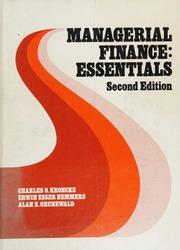Question
(Complex annuity and future value) Milhouse, 22, is about to begin his career as a rocket scientist for a NASA contractor. Being a rocket scientist,
(Complex annuity and future value) Milhouse, 22, is about to begin his career as a rocket scientist for a NASA contractor. Being a rocket scientist, Milhouse knows that he should begin saving for retirement immediately. Part of his inspiration came from reading an article on Social Security in Newsweek, where he saw that the ratio of workers paying taxes to retirees collecting checks will drop dramatically in the future. In fact, the ratio was 8.6 workers for every retiree in 1955; today the ratio is 3.0, and it will drop to 2 workers for every retiree in 2035. Milhouse's retirement plan pays 9 percent interest annually and allows him to make equal yearly contributions. Upon retirement, Milhouse plans to buy a new boat, which he estimates will cost him $300,000 in 43 years (he plans to retire at age 65). He also estimates that in order to live comfortably, he will require a yearly income of $80,000 for each year after he retires. Based on family history, Milhouse expects to live until age 80 (that is, he would like to receive 15 payments of $80,000 at the end of each year). When he retires, Milhouse will purchase his boat in one lump sum and place the remaining balance of his savings into an account, which pays 6% interest, from which he will withdraw his $80,000 per year. If Milhouse's first contribution is made 1 year from today, and his last is made the day he retires, how much money must he contribute each year to his retirement fund?
a. In order for him to withdraw 15 payments of $80,000 at the end of each year after he retires, how much money will Milhouse need to have in the retirement account earning 6% when he retires? (Round to the nearest cent.)
b. Upon retirement, Milhouse also plans to buy a new boat, which he estimates will cost him $300,000 in 43 years. How much money should Milhouse have in the retirement fund to achieve the goal when he retires? (Round to the nearest cent.)
c. Milhouse, 22, is about to begin saving for retirement immediately. His retirement plan pays 9 percent interest annually and allows him to make equal yearly contributions. If Milhouse's first contribution is made 1 year from today, and his last is made the day he retires at age 65, how much money must he contribute each year to his retirement fund to achieve the goal when he retires? (Round to the nearest cent.)
Step by Step Solution
There are 3 Steps involved in it
Step: 1

Get Instant Access to Expert-Tailored Solutions
See step-by-step solutions with expert insights and AI powered tools for academic success
Step: 2

Step: 3

Ace Your Homework with AI
Get the answers you need in no time with our AI-driven, step-by-step assistance
Get Started


